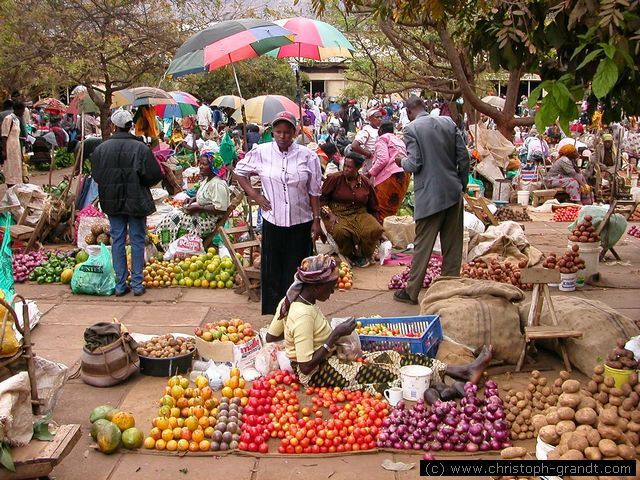Abuja, March 16, 2024: The National Bureau of Statistics (NBS), says Nigeria’s headline inflation rate increased to 31.70 per cent in February 2024.
The NBS said this in its Consumer Price Index (CPI) and Inflation Report for February, which was released in Abuja on Friday.
According to the report, the figure is 1.80 per cent points higher compared to the 29.90 per cent recorded in January 2024.
It said on a year-on-year basis, the headline inflation rate in February 2024 was 9.79 per cent higher than the rate recorded in February 2023 at 21.91 per cent.
In addition, the report said on a month-on-month basis, the headline inflation rate in February 2024 was 3.12 per cent, which was 0.48 per cent higher than the rate recorded in January 2024 at 2.64 per cent.
“This means that in February 2024, the rate of increase in the average price level is more than the rate of increase in the average price level in January 2024.’’
The report said the increase in the headline index for February 2024 on a year-on-year basis and month-on-month basis was attributed to the increase in some items in the basket of goods and services at the divisional level.
It said these increases were observed in food and non-alcoholic beverages, housing, water, electricity, gas, fuel, clothing and footwear, and transport.
Others were furnishings, household equipment and maintenance, education, health, miscellaneous goods and services, restaurants and hotels, alcoholic beverage, tobacco and kola, recreation and culture, and communication.
It said the percentage change in the average CPI for the 12 months ending February 2024 over the average of the CPI for the previous corresponding 12-month period was 26.18 per cent.
“This indicates a 6.31 per cent increase compared to 19.87 per cent recorded in February 2023.”
The report said the food inflation rate in February 2024 increased to 37.92 per cent on a year-on-year basis, which was 23.57 per cent higher compared to the rate recorded in February 2023 at 24.35 per cent.
“The rise in food inflation on a year-on-year basis is caused by increases in prices of bread and cereals, potatoes, yam and other tubers, fish, oil and fat, meat, fruit, coffee, tea, and cocoa.’’
It said on a month-on-month basis, the food inflation rate in February was 3.79 per cent, which was a 0.58 per cent increase compared to the rate recorded in January 2024 at 3.21 per cent.
“The rise in food inflation on a month-on-month basis was caused by an increase in the average prices of bread and cereals, potatoes, yam and other tubers, fish, coffee, tea, and cocoa.’’
The report said that “All items less farm produce and energy’’ or core inflation, which excludes the prices of volatile agricultural produce and energy, stood at 25.13 per cent in February on a year-on-year basis.
“This increased by 6.76 per cent compared to 18.37 per cent recorded in February 2023.’’
“The exclusion of the PMS is due to the deregulation of the commodity by removal of subsidy.’’
It said the highest increases were recorded in prices of passenger transport by road, actual and imputed rentals for housing, and medical services, pharmaceutical products, etc.
The NBS said on a month-on-month basis, the core inflation rate was 2.17 per cent in February 2024.
“This indicates a 0.07 per cent drop compared to what was recorded in January 2024 at 2.24 per cent.”
“The average 12-month annual inflation rate was 21.17 per cent for the 12 months ending February 2024, this was 4.97 per cent points higher than the 16.75 per cent recorded in February 2023.”
The report said on a year-on-year basis in February 2024, the urban inflation rate was 33.66 per cent, which was 10.87 per cent higher compared to the 22.78 per cent recorded in February 2023.
“On a month-on-month basis, the urban inflation rate was 3.17 per cent in February representing a 0.45 per cent increase compared to January 2024 at 2.72 per cent.’’
The report said on a year-on-year basis in February 2024, the rural inflation rate was 29.99 per cent, which was 8.89 per cent higher compared to the 21.10 per cent recorded in February 2023.
“On a month-on-month basis, the rural inflation rate was 3.07 per cent, which increased by 0.50 per cent compared to January 2024 at 2.57 per cent.’’
On states’ profile analysis, the report showed in February all items inflation rate on a year-on-year basis was highest in Kogi at 37.98 per cent, followed by Oyo at 36.60 per cent, and Bauchi at 35.62 per cent.
It, however, said the slowest rise in headline inflation on a year-on-year basis was recorded in Borno at 26.28 per cent, followed by Taraba at 26.72 per cent, and Benue at 27.40 per cent.
The report, however, said in February 2024, all items inflation rate on a month-on-month basis was highest in Kwara at 6.42 per cent, followed by Kebbi at 4.64 per cent, and Adamawa at 4.46 per cent.
“Katsina at 1.93 per cent, followed by Cross River at 1.98 per cent and Benue at 2.33 per cent recorded the slowest rise in month-on-month inflation.”
The report said on a year-on-year basis, food inflation was highest in Kogi at 46.32 per cent, followed by Rivers at 44.34 per cent, and Kwara at 43.05 per cent.
“Bauchi at 31.46 per cent, followed by Plateau at 32.56 per cent and Taraba at 33.23 per cent recorded the slowest rise in food inflation on a year-on-year basis.’’
The report, however, said on a month-on-month basis, food inflation was highest in Adamawa at 5.61 per cent, followed by Yobe at 5.60 per cent, and Borno at 5.60 per cent.
“While Cross River at 2.08 per cent, followed by Niger at 2.56 per cent and Abuja at 2.60 per cent, recorded the slowest rise in inflation on a month-on-month basis.”




